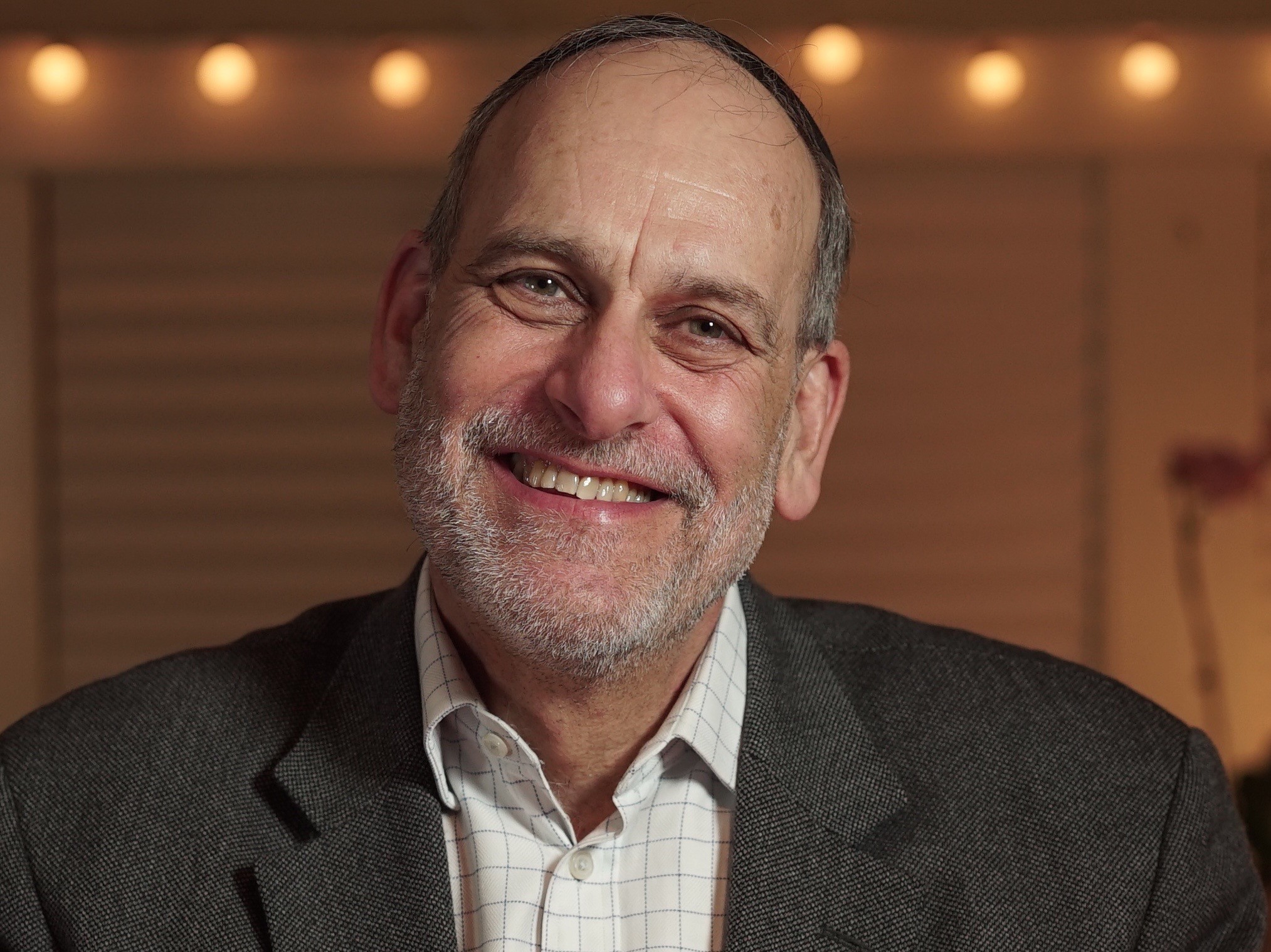
Three stages of practice-attention, action, and transformation-can guide us toward our highest spiritual potential.
Recently, my wife Bev had a hip replaced. For three weeks after surgery she couldn't get in or out of bed by herself, or even roll over. Every night I was woken up six, seven, eight times to help with this or that. My challenge was to be helpful and patient, and not irritable and short-tempered.
In the journey of learning and growing that is life, each of us faces tests like this. A situation becomes a test when it challenges us in our own personal spiritual curriculum-those inner traits that need some improvement if we are to be embodiments of the virtues Jewish tradition has set for us, and draw closer to God. The Mussar masters understood that life keeps delivering up everyday situations which show us that personal curriculum, and give us the opportunity to grow in just the ways we need.
How can a person determine the traits on their own "spiritual curriculum"? Well, I know the traits of patience, trust, truthfulness, and humility are on my own curriculum-because too often I find myself being impatient, worried, loose with truth, and getting puffed up about my own accomplishments. I'm not embarrassed to tell you this, because you are in exactly the same boat, if not in regard to these traits, then in others, like anger, or stinginess, or being judgmental. We all have a personal spiritual curriculum. It's part of life.
Life will show you your spiritual curriculum, if you pay attention. Your closest relations-your spouse, parents, children-have been trying for decades to make you aware of it. Your close friends, too, are holding up a mirror in which your spiritual curriculum is reflected, as you have been holding up a mirror to theirs. The problem is that it's much easier to be a genius about someone else's spiritual curriculum than your own.
Let's say you have identified inner traits that could do with some improvement. What now?
Mussar is a very practical discipline to help us grow. Rabbi Yisrael Salanter, who started and led the Mussar Movement in the 19th century, spoke of three stages of practice:
In stage one, called hergesh, meaning "sensitivity," we are paying attention to and learning about the traits in our inner world that are at varying degrees of balance and wholeness, and figuring out our personal spiritual curriculum.
In stage two, called kibbush, which literally means "conquer," we make behavioral changes, using our intelligence and our will to stretch ourselves toward the ideal expression of the traits in which we're challenged. Sometimes the word mussar is translated as "ethics"; it's at this stage that we do what we can to improve how we act.
The third stage, to which I will return later, is even more challenging.
For a long time I didn't think that generosity ranked very high on my spiritual curriculum. No doubt I could give more, but basically I saw myself as a generous person. I had proof: I always gave a coin or two to a homeless man outside the local drugstore. Then one day I witnessed a person giving this man a five-dollar bill and asking him, "How'd you come to be on the street?"
Realizing my level of generosity was not as high as I'd thought--I had room to grow--I began digging into my pocket more frequently, giving more, and looking for ways to bring humanity into my interactions with people in need.
This approach can be practiced on almost any trait. Just as repeatedly opening the hand will cultivate generosity, you can set yourself goals that will stretch you to become more trusting, or less so; more patient, or less so; more firm, or less so--since the issue is never the trait itself, but whether you have too much or too little of it as your habit.
Take, for example, the often unconscious habit of being judgmental of others, which runs counter to Torah's injunction "v'ahavta l'reicha kamocha "--"you shall love your neighbor as yourself." Many of us walk into a room, look around, and in a few seconds find some fault with just about every person there ("he's dressed inappropriately," "she needs a haircut," "he has terrible posture," "she's stuffing her face"). If this sounds like you, a Mussar practice is suggested by a comment in the Talmud: "It was said of Rabban Yochanan ben Zakkai that he was always the first to greet others, even a stranger in the marketplace" (Berachot 17a). Assign yourself the task of offering a prompt and gracious greeting to every person you meet in the office, supermarket, or temple. This doesn't have to involve anything flowery or creative; it just means being quick to offer a "Hello, how's your day?" or "It's nice to see you."
This Mussar practice involves both external and internal reflection and action. To develop desirable traits in ourselves, we must work toward improving the lives of others--as one great Mussar teacher puts it, we must "bear the burden of the other." At the same time, social change without simultaneous attention to one's inner life is futile. For example, a person overly endowed with anger who sets out to fix the world is likely to be easily provoked. He or she may lash out and not only hurt others, but also undermine the very effort to do good.
Still, Mussar practice reaches even deeper than personal and social change. The third level of Mussar practice, called tikkun, usually translated as "repair," might better be understood as "transformation." At the first two stages of Mussar practice, the negative impulse remains and is countered with behavioral techniques. At the third level of tikkun, we aim to transform the impulse itself and thereby reach our highest spiritual potential: as God says, "kedoshim tihiyu," "you shall be holy" (Leviticus 19:1).
The body of Mussar practices designed to bring about tikkun ha'middot (transformation of soul-traits) are powerful and intense, and as such are best done with a teacher, partner, or group. Meditations, contemplations, visualizations, and chanting all employ images, concepts, sounds, and emotions to leave traces deep within. Over time the traces accumulate and work the transformation until a negative impulse is uprooted and replaced by a positive one.
And so, seeking to become more generous, I undertook a visualization practice. Every day I spent time visualizing an open hand, an image that for me embodies generosity. Sitting quietly, I envisioned that open hand in my mind's eye until the image became neon-bright. After several week-long installments, I had laid down enough traces of the image on my soul. Now, whenever I encounter a situation in which I have the option to be generous (or not), up comes this image of the open hand inspiring me to give. I had altered my impulse.
What are the next steps to bringing Mussar into your life?
- Review the questions and practices suggested in my Study/Discussion Guide to Mussar.
- Choose one of these traits and do the suggested practice for one week. Along the way, reflect on your experience:
- Generosity: Do three generous acts every day.
- Honor: Greet everyone you meet with words of real interest.
- Patience: Be strong in holding back from reactivity when forced to wait.
- Gratitude: Go out of your way to express thanks to all who do things for you.
- Learn more about Mussar and Middot.
- Read an ancient Mussar text, like The Path of the Just by Rabbi Moshe Chaim Luzzatto (1740) or The Duties of the Heart by Rabbi Bachya ibn Paquda (1080), or a modern one, such as Strive for Truth! by Rabbi Eliyahu Dessler.
- Take a distance learning course offered through The Mussar Institute.
- Talk to your rabbi or education director about starting a Mussar group.
- Form a Mussar chevruta partnership (studying in pairs) with friends or congregants. To join an existing group of fellow seekers contact The Mussar Institute.
When Bev had that hip replaced and I was challenged to be patient, we were both grateful that I had learned and practiced Mussar. Of course, I'd wanted to be patient, but the intention is just not enough. I needed practices to strengthen my capacity.
At the time, my Mussar practice was focused on abstinence (or prishut in Hebrew), which, for me, usually means steering away from coffee, dessert, unnecessary shopping, or television. Here I had the opportunity to abstain from a different sort of thing--impatience. And so, at 4 A.M., when I was awakened for the fifth time that night and the cells of my body called out for me to pull the blanket up over my head, I had prepared myself to abstain from impatience and selfishness. As a result, I took good care of Bev, and in so doing served another human being, our marriage, and my own soul--all steps toward reaching my highest spiritual potential, which, as the Torah tells us, is to be holy.

